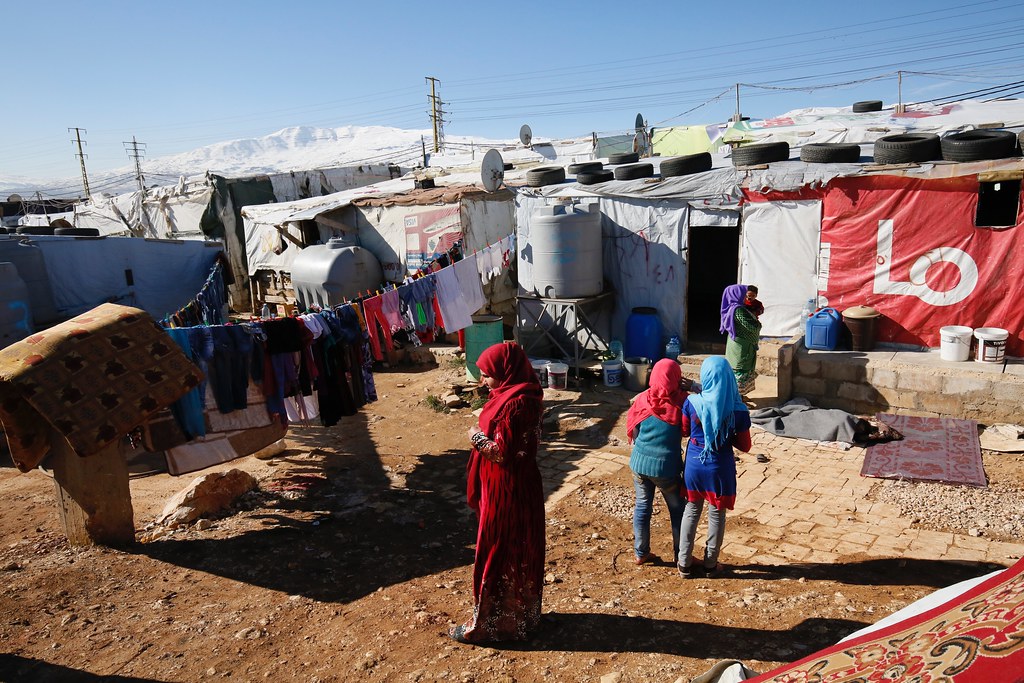The enduring influence of shamanism in South Korean politics, reflected in Squid Game‘s portrayal of Seon-Nyeo, reveals deeper tensions between tradition, governance, and ideology. Similarly, the rise of religious conservatism in the U.S. highlights how cultural beliefs shape political landscapes, raising urgent questions about democracy’s susceptibility to supernatural and ideological forces.
Upon its release in 2021, Netflix’s Squid Game took the world by storm, with its brutal critique of capitalism, class struggle, and the desperation that is underlying the socioeconomic inequalities of South Korea. While most of the discourse around the show has revolved around the dystopian commentary of the show, one of its most intriguing elements can be found in its characterisation, especially that of Player 44, Seon-Nyeo in Season two. While Seon-Nyeo is often written off as comic relief, her erratic, unpredictable behaviour and her self-proclaimed spiritual insights are based on deeply ingrained cultural archetypes, the most obvious one being that of the shaman.
Squid Game’s way of portraying Seon-Nyeo’s survival tactics as erratic but cunning mirrors the way citizens have ridiculed and feared shamanistic figures within South Korea’s political landscape. By placing this critique within the context of a popular, globally recognised narrative, Squid Game not only uncovers the continuing existence of the influence of shamanism in South Korean politics, but also examines the relationship between ideology, culture, and religion in governance—questions that are felt far beyond the borders of South Korea.
For centuries, shamanism has influenced South Korean politics in subtle yet profound ways. Though it is often written off as superstition in modern discourse, it persists in both personal and political life. It is not uncommon for South Koreans to engage in some form of fortune telling (saju, 사주) before important events in their life, such as relocation, commencing a new job, or entering a new relationship. While personal decisions to engage in these activities cannot be criticised, perhaps shamanistic reliance in politics should be considered a different matter entirely. Disturbingly, shamans have repeatedly influenced multiple administrations in South Korea in ways that have completely reshaped the trajectory of South Korean politics.
In light of President Yoon Seok-Yeol’s impeachment, it is particularly relevant to examine the enduring influence of shamanism in South Korean politics, evident in people such as shaman Cheon Gong who allegedly guided Yoon during his electoral process, the relocation of the presidential residence, and multiple policy making processes. This influence is not only restricted to Yoon’s entourage, as evidenced by the example of another shaman, Jin Sung-bae, who allegedly marked the Chinese character for king (wang, 王) on Yoon’s palm as a ritualistic practice in preparation for a televised presidential debate. Furthermore, the participation of a shaman as a witness in the parliamentary hearings on the martial law declaration on 3 December last year shows more and more integration of shamanistic persons in the political system of South Korea.
From the now infamous scandal involving former President Park Geun-Hye and her spiritual adviser Choi Soon-Sil, to President Yoon Seok-Yeol’s alleged connections to various Shamans, South Korean leadership has often incorporated practices deeply rooted in fortunetelling, superstition, and mysticism.
However, the influence of cultural and religious ideologies in democratic societies is not something unique to South Korea. Although the United States is a multifaith and multicultural society, the growing influence of white Christian conservatism on the Trump administration cannot be ignored. Since winning the support of about eight out of ten White evangelical voters in the 2024 election, Trump has quickly started to deliver policies aligned with this supporter base.
Soon after inauguration, Trump reinstated the Mexico City Policy which prohibits US federal funding for non-governmental organisations that provide abortion services or counselling. Under Trump 2.0, federal agencies have been directed to reduce enforcement of the Freedom of Access to Clinical Entrances Act—a law designed to protect abortion clinics from threats and violence. Such practices are consistent with the views of pro-life Christian conservatives.
Rather than writing off the increasingly questionable practice of politics in countries like South Korea and the US, democracies around the world should take heed. The impact of insular cultural and religious ideologies on political processes, especially during this increased global climate of political polarisation, is of concern for all democracies.
To ensure that democracies are truly inclusive and reflective of the viewpoints of all citizens, especially in multicultural societies, we need to actively call out and problematise the impact of cultural and religious ideologies on politics.
As the characterisation of Seon-Nyeo demonstrates, it does not take long before seemingly erratic behaviour becomes charismatic for those who choose to follow, whether that be in South Korea, US, or any other democracy around the world.
Dr Se Youn Park is a recently-submitted PhD candidate in the School of Political Science and International Studies at the University of Queensland, specialising in International Relations. Se Youn has two research streams. The first focuses on the regulation of ISIS women returnees in the UK and Australia, exploring how legislation, narratives, and practices shape unique outcomes for these women. Her secondary research focus on South Korean institutions and political behaviour. Se Youn also serves as Director of Research at Women in International Security (WIIS) Australia Inc.
Afeeya Akhand is the Secretary of Women in International Security – Australia Inc. (WIIS-A). She also is a Researcher at the Australian Strategic Policy Institute where she focuses on Indo-Pacific security, Australia-South Korea relations and social cohesion.
This article is published under a Creative Commons License and may be republished with attribution.




